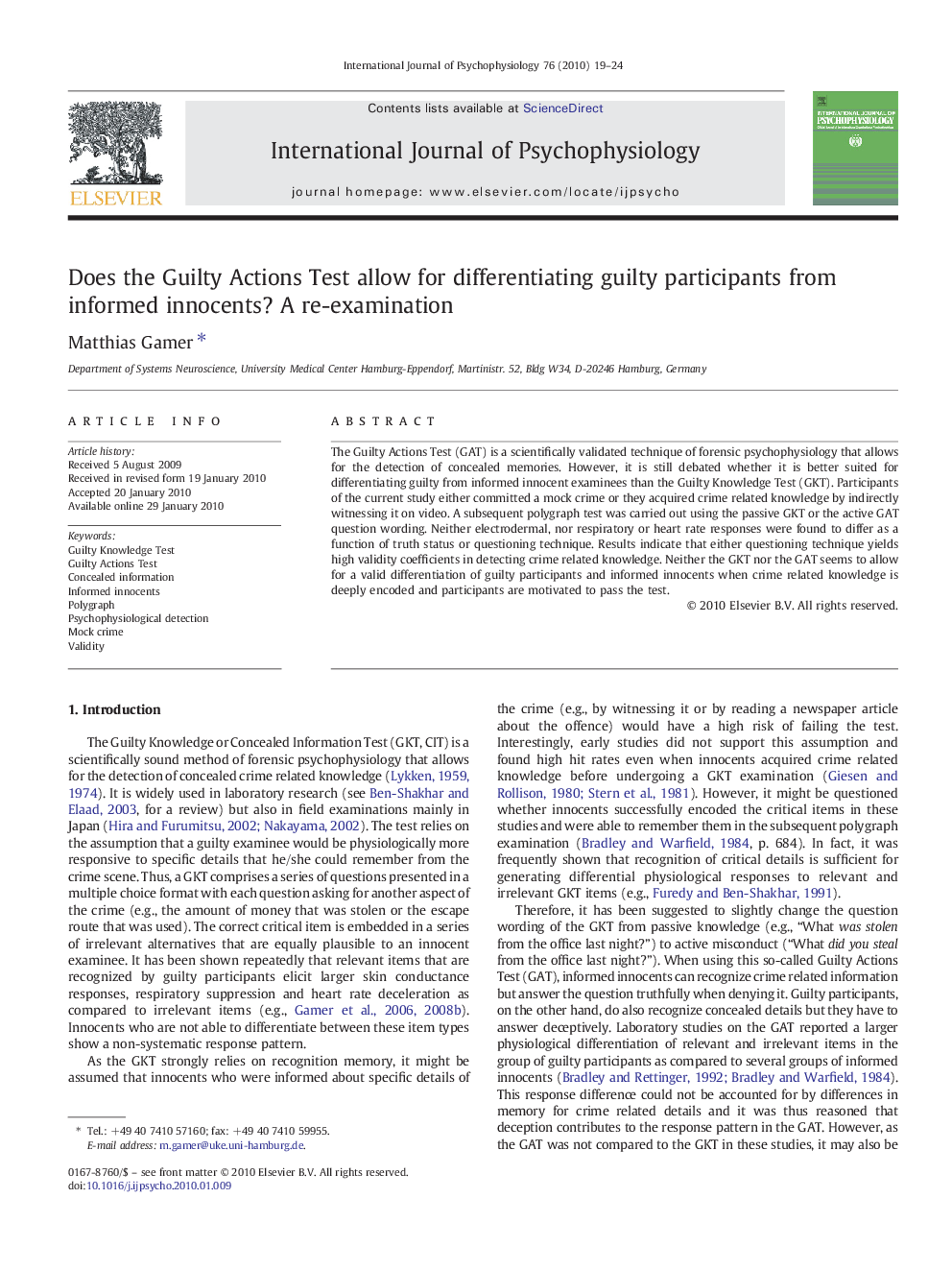| Article ID | Journal | Published Year | Pages | File Type |
|---|---|---|---|---|
| 7296163 | International Journal of Psychophysiology | 2010 | 6 Pages |
Abstract
The Guilty Actions Test (GAT) is a scientifically validated technique of forensic psychophysiology that allows for the detection of concealed memories. However, it is still debated whether it is better suited for differentiating guilty from informed innocent examinees than the Guilty Knowledge Test (GKT). Participants of the current study either committed a mock crime or they acquired crime related knowledge by indirectly witnessing it on video. A subsequent polygraph test was carried out using the passive GKT or the active GAT question wording. Neither electrodermal, nor respiratory or heart rate responses were found to differ as a function of truth status or questioning technique. Results indicate that either questioning technique yields high validity coefficients in detecting crime related knowledge. Neither the GKT nor the GAT seems to allow for a valid differentiation of guilty participants and informed innocents when crime related knowledge is deeply encoded and participants are motivated to pass the test.
Related Topics
Life Sciences
Neuroscience
Behavioral Neuroscience
Authors
Matthias Gamer,
